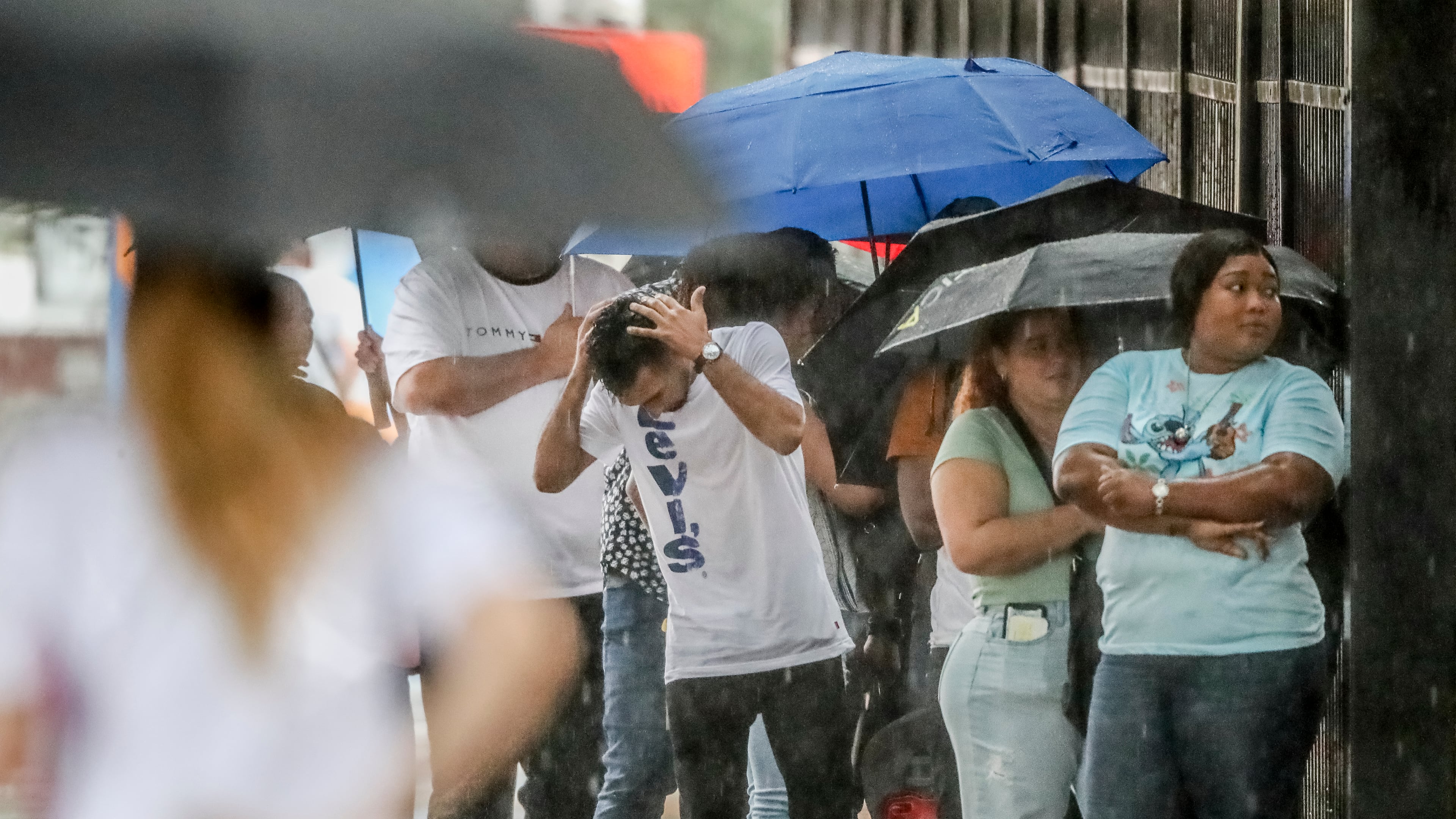Immigrants told cases were ‘closed.’ ICE could send thousands back to court.

Immigrants who had been allowed by judges to remain in the country, sometimes for a decade or more, may now face detention and deportation following a Trump administration move that seeks to reverse past immigration court decisions.
Nationwide, nearly 400,000 immigrants could be at risk.
Targeted by the new enforcement tactic are people whose deportation cases were administratively closed. Federal authorities are filing motions to “re-calendar” those closed cases, putting people back in removal proceedings, immigration attorneys are reporting.
Administrative closure is granted to immigrants who are deemed to be a low-priority for removal, in part because they have no criminal record. Judges typically close cases for humanitarian reasons, or when someone has a pending application for immigration benefits with another agency.
Administrative closure is not a final decision on a deportation case, but rather a suspension.
“You put cases on the back burner because you don’t need them to be at the forefront,” said Jennifer Hamamoto, an immigration attorney and managing director of immigration at the Latin American Association, a nonprofit headquartered on Buford Highway.
According to the Executive Office for Immigration Review, the agency within the Justice Department that runs the immigration courts system, there were 398,536 administratively closed cases nationwide as of April.
Four Atlanta-area immigration attorneys told The Atlanta Journal-Constitution that, starting last month, they or colleagues received notices that a large swath of Georgia cases were on the verge of being reopened.
“It seems like a really technical thing to describe, but the stakes are really high, and the human impact is real, and this will harm a lot of people,” said Adriana Heffley, director of legal services at the Georgia Asylum and Immigration Network.

Immigrants with previously closed cases “may have felt safe,” Heffley added. “They were in a really secure holding pattern, and they had some level of certainty for years. That has all been shaken up.”
Traditionally, changed circumstances specific to individual cases may have prompted the government to file a motion to reopen a deportation case, such as criminal activity on the immigrant’s part.
Now, the Department of Homeland Security is filing to reopen closed cases “indiscriminately,” according to Carolina Antonini, an Atlanta immigration attorney. In mid-July, Antonini’s firm received over 60 notices that the government had moved to reopen once closed cases, one as far back as 2009. Included in that number are at least two cases Antonini was never involved with.
“This is a serious due process violation,” Antonini said.
DHS defended its widescale reactivating of dormant deportation cases.
“This Administration is once again implementing the rule of law,” DHS assistant secretary Tricia McLaughlin said in a statement. “Biden chose to release millions of illegal aliens, including criminals, into the country and used prosecutorial discretion to indefinitely delay their cases and allow them to illegally remain in the United States.
“Now, President Trump and Secretary Noem are following the law and resuming these illegal aliens’ removal proceedings and ensuring their cases are heard by a judge.”
Alpharetta-based immigration attorney Luis Alemany also received roughly 60 similar notices last month. Nineteen of the 60 concern past clients with whom Alemany hasn’t had any contact in 10 years.
Losing contact with their attorney could result in immigrants failing to know about new immigration court hearings — and being ordered removed in absentia.
For people without attorneys, federal authorities mail the paperwork to the individual’s last known address. If the person in question moved and failed to update their address with the court, they could also miss hearings and wind up with a deportation order.
“There are due process concerns, but is anybody going to care? This is one of the most vulnerable sectors of our society, and they get steamrolled on a regular basis,” Alemany said.
The push to reopen deportation cases is taking place amid an expansion of people detained by Immigration and Customs Enforcement.
As of mid-June, the number of people in ICE detention was nearing 60,000, up roughly 50% since January. It’s a number that is expected to keep growing, given the surge in funding for immigration detention provided for in the recently passed “Big, Beautiful Bill Act.”
In tandem, ICE is also trying to limit detained immigrants’ access to bond hearings. Previously, immigrants with no serious crimes on their record were generally able to seek bonds and fight deportation from home instead of detention.
These developments mean that people with newly reopened cases could face long stays in detention facilities while awaiting a final decision from a judge. The process can sometimes take years.
And the prospect of prolonged detention could erode people’s willingness to contest their deportation in court, attorneys say.
“I suspect that (the Department of Homeland Security) is counting on people simply giving up because they lack the means to hire representation, or maybe because they fear detention or do not want to remain detained during litigation,” Antonini said.
“You know, people get exasperated and frustrated with being detained, and then they elect to voluntarily depart,” Hamamoto added.


